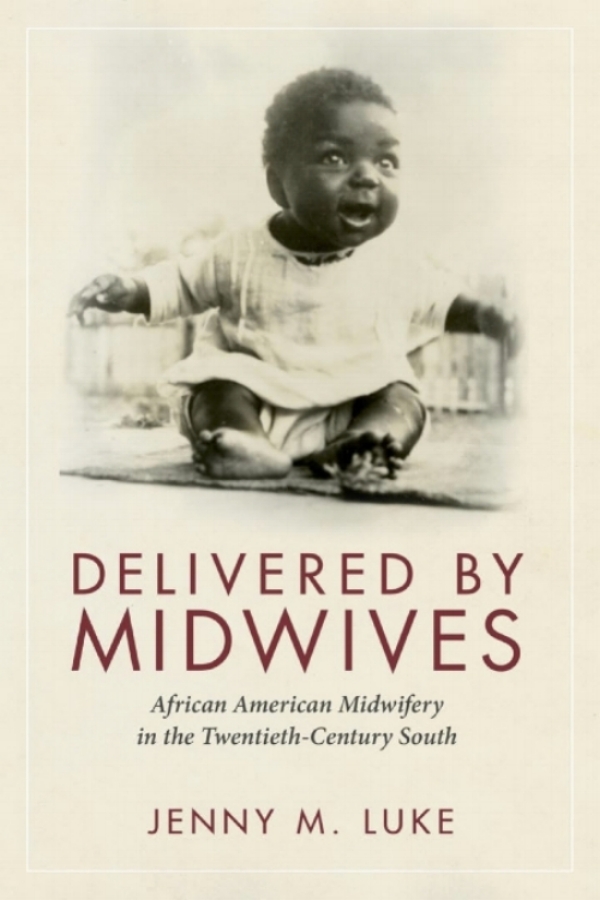After a century of federal regulation of maternity care, we may learn important lessons from what the past suggests for our current health care dilemmas.
If you enjoy the award-winning PBS TV series Call The Midwife this book is a MUST read!

WINNER OF THE 2019 AMERICAN ASSOCIATION FOR THE HISTORY OF NURSING LAVINIA L. DOCK AWARD FOR EXEMPLARY HISTORICAL RESEARCH AND WRITING IN A BOOK Learn more at https://www.jennymluke.com/
Available at independent bookstores, indiebound.org, Amazon.com, and Barnes and Noble.com
I received a complimentary copy.
Cassandra's Review- I just skimmed the book it looks interesting but I will not be reading the full thing. The notes section is much easier to skim or browse for certain topic enhancers.
“Catchin babies” was only one aspect of the role of African American midwives in the twentieth-century South. “Delivered by Midwives: African American Midwifery in the Twentieth Century South” by Jenny Luke uses evidence from nursing, medical and public health journals of the era: primary sources from state and county departments of health and personal accounts from practitioners to provide a new perspective on the childbirth experience of African American Women and their maternity care providers.
In addition, Luke covers the valuable aspects of a maternity care model that was discarded in the name of progress. She describes elements of the long- abandoned care model that are being reintroduced into modern practice, answering current health care problems by taking lessons from the past.
Today, according to Luke, the future of American midwifery is in the hands of the approximately 11,500 certified nurse-midwives, the largest denomination of midwives. They continue to challenge obstetricians for a space in the American maternity care system, but their intention in not so supplant the physician but to supplement, she said.
For a century or more prenatal care has been accepted as the key to lowering maternal and infant mortality and midwives are unrivaled at facilitating women’s entry into care but midwifery must be integral to the larger system lest we return to a care model that was proven to be deficient Luke explained.
If you enjoy the award-winning PBS TV series Call The Midwife this book is a MUST read!

WINNER OF THE 2019 AMERICAN ASSOCIATION FOR THE HISTORY OF NURSING LAVINIA L. DOCK AWARD FOR EXEMPLARY HISTORICAL RESEARCH AND WRITING IN A BOOK Learn more at https://www.jennymluke.com/
Available at independent bookstores, indiebound.org, Amazon.com, and Barnes and Noble.com
I received a complimentary copy.
Cassandra's Review- I just skimmed the book it looks interesting but I will not be reading the full thing. The notes section is much easier to skim or browse for certain topic enhancers.
“Catchin babies” was only one aspect of the role of African American midwives in the twentieth-century South. “Delivered by Midwives: African American Midwifery in the Twentieth Century South” by Jenny Luke uses evidence from nursing, medical and public health journals of the era: primary sources from state and county departments of health and personal accounts from practitioners to provide a new perspective on the childbirth experience of African American Women and their maternity care providers.
In addition, Luke covers the valuable aspects of a maternity care model that was discarded in the name of progress. She describes elements of the long- abandoned care model that are being reintroduced into modern practice, answering current health care problems by taking lessons from the past.
Today, according to Luke, the future of American midwifery is in the hands of the approximately 11,500 certified nurse-midwives, the largest denomination of midwives. They continue to challenge obstetricians for a space in the American maternity care system, but their intention in not so supplant the physician but to supplement, she said.
For a century or more prenatal care has been accepted as the key to lowering maternal and infant mortality and midwives are unrivaled at facilitating women’s entry into care but midwifery must be integral to the larger system lest we return to a care model that was proven to be deficient Luke explained.

Comments
Post a Comment